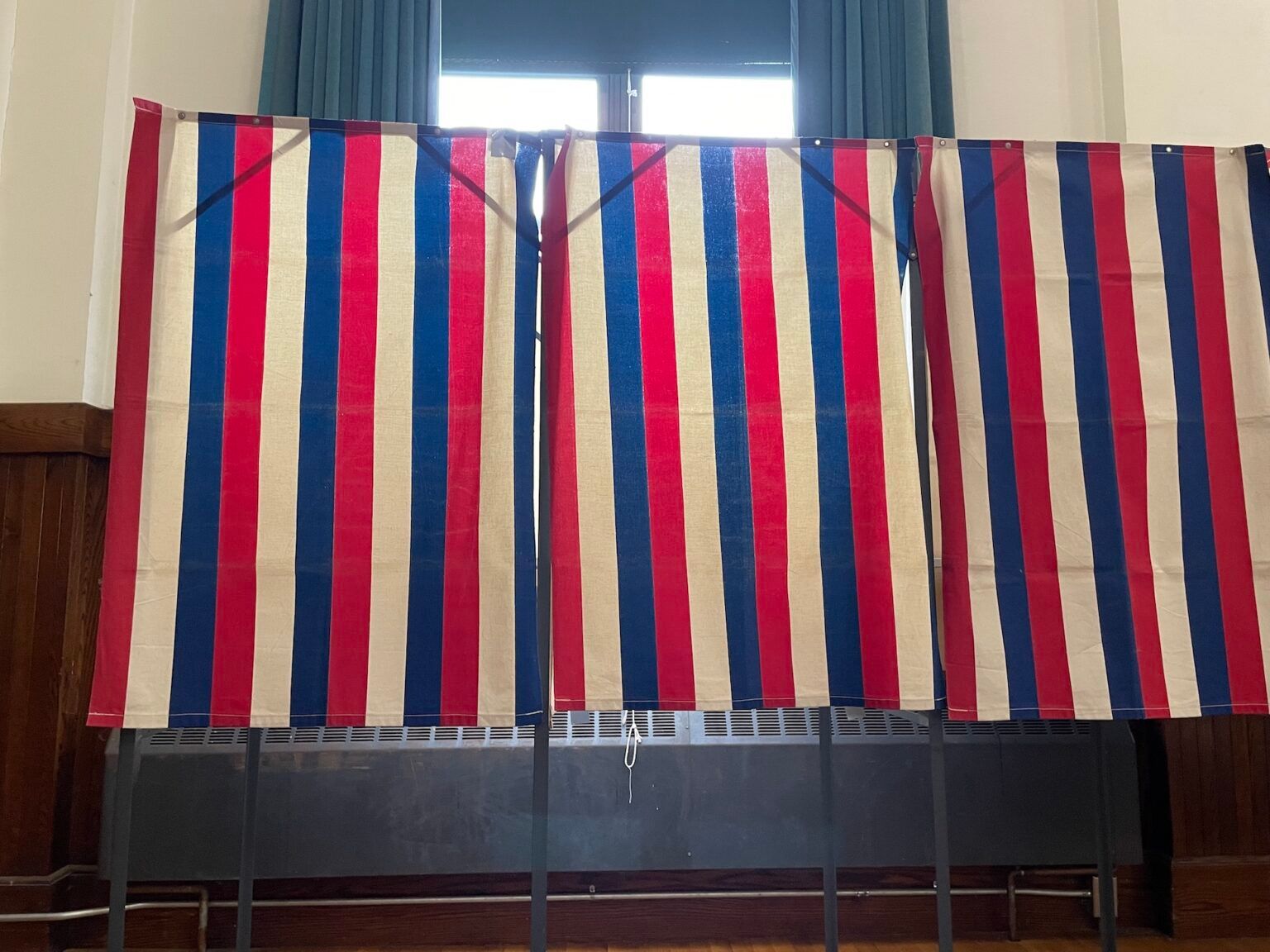The backstory on 5 key moments in Bolduc and Hassan's first debate

The two contenders running for U.S. Senate in New Hampshire met Tuesday morning in Conway for their first debate, which covered a wide range of topics while emphasizing matters related to the economy.
Democratic incumbent Sen. Maggie Hassan and Republican challenger Don Bolduc kept their exchange fairly polite as they lobbed accusations at each other and fielded follow-up questions from moderator George Epstein.
The event, which was hosted by the Mt. Washington Valley Economic Council, was the first of three general election debates that both Hassan and Bolduc have agreed to attend. (Bolduc has pushed for additional debates, but Hassan hasn't accepted.)

Here are five key moments from the debate, with an explanation of the backstory that may not have been clear to those who watched the debate live:
1. Moderator pressed both Hassan and Bolduc on government spending
Epstein asked both candidates what they would do to cut spending or raise taxes to shrink the federal government's deficit with the ultimate goal of tamping down inflation. He turned to the incumbent first.
Hassan said businesses and families are feeling the real-world impacts of inflation, so leaders need to address both short-term costs and long-term drivers of inflation. She touted two provisions of the Inflation Reduction Act, which she and fellow Senate Democrats approved in August.
The first provision Hassan mentioned allows Medicare to negotiate prescription drug prices to reduce costs for seniors and bring down the federal deficit in the years ahead. The second provision she mentioned offers tax breaks and rebates to consumers who make investments in energy efficiency.
Despite its name, the Inflation Reduction Act's immediate impacts on inflation are expected to be negligible, according to the Congressional Budget Office. The White House and Democrats in Congress have argued that the law will help to ease inflation in the years ahead.
Epstein chimed in Tuesday with a follow-up, giving Hassan another 30 seconds to respond: "Isn't it true that the bill to negotiate drug rates doesn't take effect 'til 2026?"
Hassan replied, "Some of it takes effect right now. For instance, drug companies are already subject to a penalty if they spike their prices too high, as a result of that legislation. The cap on insulin for seniors, at $35 a month, will start in January. But we anticipate a ripple effect across the drug markets because of this legislation."
Epstein turned to Bolduc, who said he would work to stop "the out-of-control spending" in Washington. He said Hassan has supported spending measures that drive inflation, effectively reducing the value of Americans' retirement savings. He said inflation will rise higher, and he said Granite Staters are struggling to feed their families and heat their homes.
"We've got to stop the spending, immediately," Bolduc said.
In his follow-up, Epstein asked Bolduc to be more specific: "What would be, though, the hundreds of billions of dollars that we would need to cut from spending in order to bring our deficit spending under control? Where would you get hundreds of billions of dollars of reduced spending?"
Bolduc replied, "Well, I think you need to review the omnibus bill. You need to review the Inflation Reduction Act, which was nothing more than an IRS expansion act. ... We've got to look at all these bills and all these bailouts and all the money that goes to special interests and lobbyists that she supports."
2. Bolduc denied wanting to nix Social Security and slash Medicare
Not yet satisfied with the amount of detail each candidate offered on their government spending plans, Epstein gave each candidate another minute on the topic.
That's when Hassan said Bolduc was failing to mention that he wants to reduce the deficit by eliminating Social Security and cutting Medicare. For sourcing to support her claims, Hassan referred to BolducFacts.com, a website paid for by her campaign.
Bolduc denied Hassan's claims. "These aren't DonBolduc'sFacts.com. They're MaggieHassanLies.com," he said, "and I have never said that I would get rid of Social Security." He said Medicare would go insolvent on Hassan's watch.
(Within a few minutes of Bolduc's retort, someone claimed MaggieHassanLies.com. Domain records show the domain was registered about 13 minutes into the debate. It's unclear who claimed the domain, which was still parked as of early Tuesday afternoon. Neither campaign responded to Granite Memo's questions about the mid-debate dot-com coinage.)

Bolduc continued his response to Hassan's claims: "Those are lies, and they've got to be called out as lies, and you've got to do your research."
In one of the video clips posted on the Hassan campaign's BolducFacts.com, Bolduc credited experts at The Heritage Foundation for helping to shape his ideas to reduce spending, including saving $1.2 trillion on Medicare and $2 trillion on Social Security. In two other clips, Bolduc suggested raising the retirement age by two years, from 65 to 67.
The website from Hassan's campaign also faults Bolduc for referring to Medicare privatization as "hugely important." In another video on the site, Bolduc said change is necessary to protect the livelihoods of older and younger Americans alike. In one very short clip, Bolduc appears to argue in favor of replacing Social Security with a new system over the long term.
The key phrase in Bolduc's denial appears to be that he would never "get rid of" Social Security. He has clearly called for changes to Social Security and Medicare, and the evidence presented by Hassan's campaign appears to support the claim that Bolduc would pursue a long-term objective of replacing the Social Security system. The implication that he would nix the program entirely in the short term appears to be what Bolduc denied most directly.
3. Hassan cited deficit reduced 'by half' in the past year
During their follow-on exchange about government spending details, Hassan briefly highlighted what she sees as a recent success.
"Let's just be clear," she said. "We've reduced the federal deficit by half in the last year. And that's a really important note."
Her statement is factual: The federal budget deficit was $1.4 trillion in fiscal year 2022, which is about half as much as the prior year's deficit, according to CBO estimates released last week.
But a chunk of the deficit reduction is attributable to a decline in spending related to the COVID-19 pandemic emergency. Federal policy changes this year added spending, which led to a deficit reduction that's less impressive than earlier estimates had predicted.
The latest increase in outlays comes primarily from student debt relief efforts, according to the CBO report. Although she doesn't support canceling all student debt, Hassan lauded Biden's student loan forgiveness plan as "a balanced compromise that will help those who need it the most."
